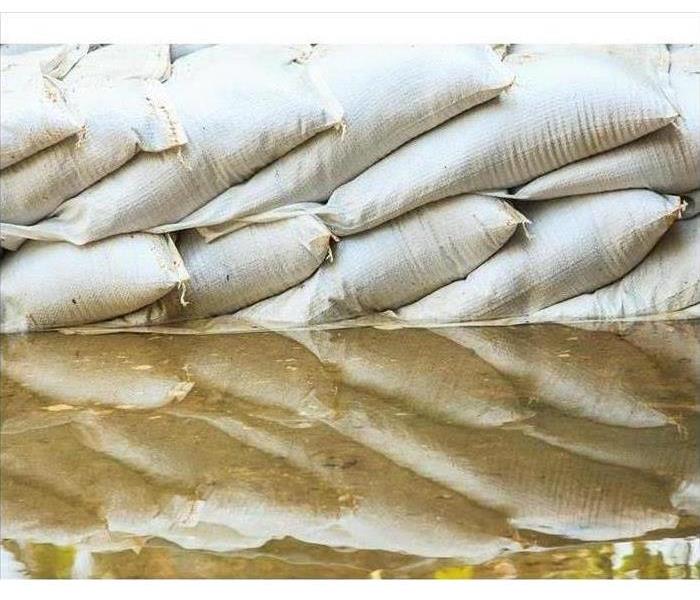3 Things to Know About Sandbags
7/15/2020 (Permalink)
When faced with a storm resulting in heavy rain and flood waters in Dedham, MA some business owners may consider the use of sandbags to prevent water damage to their commercial property. The certified flood damage restoration experts at SERVPRO of Norwood/West Roxbury understand the importance of proactively taking steps to mitigate damage before it occurs as a way to protect the property and reduce clean up times and costs and a flood dam is one way to do this. Here is what you may want to know:
How They Work
In most cases flood dams work by directing water flow away from the threatened area. Many people choose sandbags as they are easy to build in a variety of protective formations. Dry sand is loaded into the bag, the bag is then folded and placed to create a wall. When the water reaches the wall it is absorbed by the sand which then becomes heavier, harder to move, and creates a tighter seal.
Where to Place Them
When creating a sandbag barrier to protect your commercial property it’s recommended to construct it in a way that directs the flow of water rather than trying to block it. This will put less force on the wall. Also, it will keep the water moving to a safe drainage location. Consider setting the barrier up so that the water flows down hill and away from the property or into a drainage ditch or open field where it can disperse safely.
When to Use Them
One of the best ways to reduce flood damage is to know when to use a flood dam. In most cases you may want to consider the use of sandbags any time you believe flooding may pose a high risk to the property.
When making a sandbag wall or using another flood dam type to protect your commercial property it’s important to understand how they work and where to place them to direct water flow. Even the best laid plans often go awry. Despite your efforts your property may still suffer damage. That is when you need to call the remediation experts at SERVPRO of Norwood/West Roxbury, (781) 769-9125. We will make it, "Like it never even happened."





 24/7 Emergency Service
24/7 Emergency Service
